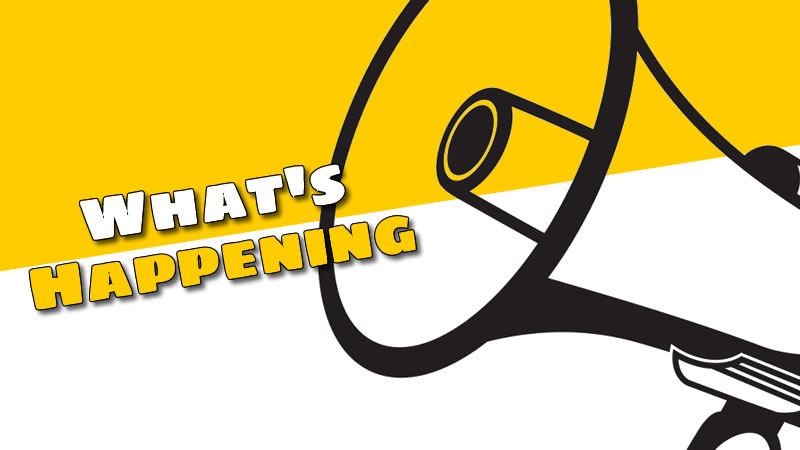Bula vinaka everyone.
Here is another edition of some basic information you may need to know for today.
First, here is your weather forecast for today:
Weather
- Cloudy periods with some showers and isolated thunderstorms over the eastern and eastern interior parts of Viti Levu, Northeastern parts of Vanua Levu and Taveuni.
- Cloudy periods with few showers over Kadavu, the Lau and Lomaiviti group.
- Elsewhere, fine apart from isolated afternoon showers and thunderstorms.
- Moderate east to northeasterly winds.
- Moderate seas.
- Outlook for Thursday: Cloudy periods with some showers and isolated thunderstorms over eastern and eastern interior parts of Viti Levu, northeastern parts of Vanua Levu and Taveuni.
- Cloudy periods with few showers over the Lau and Lomaiviti group.
- Elsewhere, fine apart from isolated afternoon showers and thunderstorms.
General information – Events
- Buffet Dinner & Dance with Nem & Talei at Paradiso Restaurant & Bar at 6pm
- Xmas Cup at Usp Gymnasium at 5pm
- The VHS Reunion Night at Vunimono School Hall at 6pm
EFL Planned Power Shutdown
- Nasinu – 8am to 5pm
- Korociriciri Road, Nausori – 8am to 6pm
- Pacific Harbour, Deuba – 9.30am to 5pm
- Part of Velovelo, Lautoka – 8am to 5pm
- Part of Wairebetia, Lautoka – 8am to 5pm
- Nadarivatu Road, Tavua – 9am to 4.30pm
- Korotale Road, Rakiraki – 10am to 5pm
- Racecourse Road, Ba – 9am to 5pm
Entertainment
Editor’s movie picks:
- Spider-Man: No Way Home – 10.50am, 2pm, 8pm at Life Cinema Lautoka; 10.50am, 2pm, 5.10pm, 8.20pm at Life Cinema Nadi; 10.50am, 2pm, 5.10pm, 8.20pm at Life Cinema Nakasi; 10.50am, 2pm, 5.10pm, 8.20pm at Life Cinema Labasa
- Spider-Man: No Way Home – Darmodar Cinemas – 10.40am, 1.30pm, 3pm, 5.40pm, 6.30pm, 30pm
COVID-19
Health Ministry advice:
- People with severe COVID-19 are still dying at home, or are coming to a medical facility in the late stages of severe illness.
- Severe COVID-19 is a medical emergency, and a delay in receiving appropriate medical treatment reduces your chance of recovering from the disease. You are at higher risk of developing severe COVID-19 if you are over the age of 50 or have a non-communicable disease or chronic disease like diabetes, hypertension, heart disease, kidney disease, or if you are obese or pregnant.
- If you are at high risk of severe disease and have any symptoms of COVID-19 such as a cough, runny nose, fever, sore throat, body ache, headache, loss of taste/smell – please come to your nearest screening clinic to be checked and tested by our medical teams.
- The severe symptoms of COVID-19, include the following: – Difficulty breathing; – Persistent pain or pressure in the chest; – Severe headache for a few days; – New confusion, inability to wake or stay awake; – Pale, gray, or blue-coloured skin, lips or nail beds.
Source: MOHMS
On 26 November 2021, WHO designated the variant B.1.1.529 a variant of concern, named Omicron, on the advice of WHO’s Technical Advisory Group on Virus Evolution (TAG-VE). This decision was based on the evidence presented to the TAG-VE that Omicron has several mutations that may have an impact on how it behaves, for example, on how easily it spreads or the severity of illness it causes. Here is a summary of what is currently known.
Current knowledge about Omicron
Researchers in South Africa and around the world are conducting studies to better understand many aspects of Omicron and will continue to share the findings of these studies as they become available.
Transmissibility: It is not yet clear whether Omicron is more transmissible (e.g., more easily spread from person to person) compared to other variants, including Delta. The number of people testing positive has risen in areas of South Africa affected by this variant, but epidemiologic studies are underway to understand if it is because of Omicron or other factors.
Severity of disease: It is not yet clear whether infection with Omicron causes more severe disease compared to infections with other variants, including Delta. Preliminary data suggests that there are increasing rates of hospitalization in South Africa, but this may be due to increasing overall numbers of people becoming infected, rather than a result of specific infection with Omicron. There is currently no information to suggest that symptoms associated with Omicron are different from those from other variants. Initial reported infections were among university students—younger individuals who tend to have more mild disease—but understanding the level of severity of the Omicron variant will take days to several weeks. All variants of COVID-19, including the Delta variant that is dominant worldwide, can cause severe disease or death, in particular for the most vulnerable people, and thus prevention is always key.
Source: WHO




